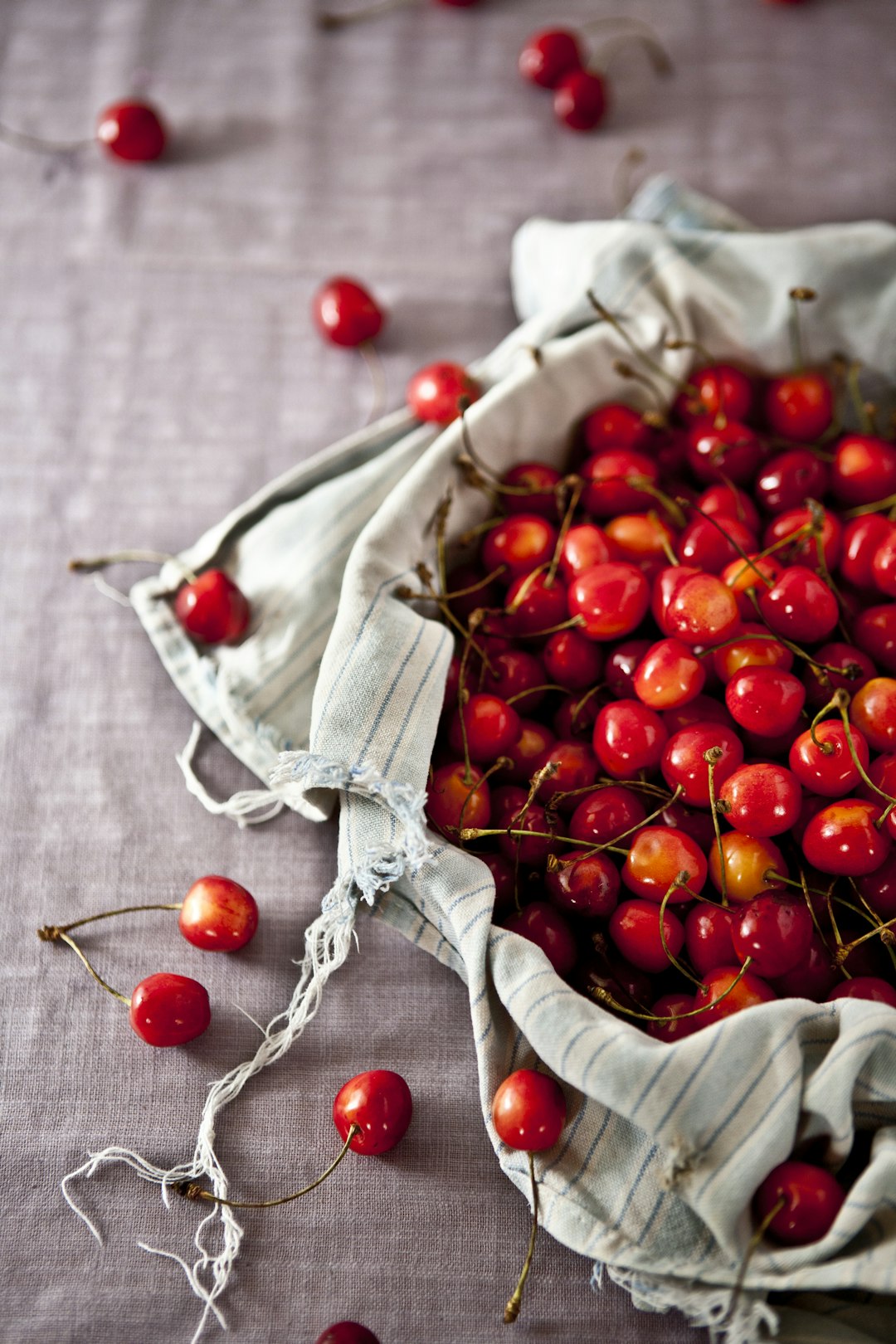What is the Warrior Diet?
The Warrior Diet by Ori Hofmekler is inspired by the eating habits of ancient warrior classes like Gladiators or Spartans. Incorporating what is commonly known as 'Intermittent Fasting'. The idea is that in ancient times it was common to have to fast throughout the day; fighting, marching, hunting etc. and feast in the evening. Essentially it's a massive appeal to nature, similar to the Paleo diet. The writer openly admits to not having scientific evidence to back his claims but promises that, with persistence, one will reach high levels of focus throughout the day and make faster physical gains. I could not find much evidence in opposition to these claims, so I thought I'd give it a shot!
In short, the Warrior Diet is:
- 4 Hour eating window per day i.e one meal a day (OMAD).
- Some light foods are allowed outside of this window e.g. raw fruit and vegetables.
- During the feasting window, start with light food and progress to slower digesting food (e.g. grains, legumes and nuts).
- The feast is truly a feast, you are not trying to eat at a calorie deficit.
Update 1
Week One
I went into this thinking it would take weeks to adapt. That I'd be distracted by my stomach all day and feel weak and tired 24/7. I can happily report that after the first week I have quickly grown accustomed to this diet and see myself continuing indefinitely! I was worried how my body would react after doing the standard 3 meals a day for my entire life and then jumping straight into one huge one in the evening (the book recommends easing into it by gradually shortening the eating window).
It seems the worrying was unnecessary.
The first few days were hard, I was certainly aware of the feeling of hunger, but that promptly faded away. My stomach had to grow due to the sheer volume of food I was having to consume, but literally after the first feast that stopped being a problem! However, something that continues to be a problem is digestion. Due to the amount of food you are consuming it becomes much more important to consider what you are eating and in what order. I see why the author stresses it so much in the book now.
As for claims of 'improved focus' I can say that I have noticed a positive difference. Again, in the first few days, I was clearly distracted by thoughts of food, instinctively looking up when someone started eating their lunch in the library for example, however, when my body realised it wasn't mealtime anymore it stopped being an issue. I'm not used to being able to work for such long periods of times without needing a food break! I was having to go for walks to keep me feeling fresh. Without a lunch break, I found myself burning out (as you can get so engrossed in your work).
To be honest I don't work out consistently enough to comment on physical changes. And I'm not trying to lose/gain weight so I haven't been weighing myself.
Update 2
Week Two
It's safe to say I have successfully adapted to the Warrior Diet. Feelings of hunger have completely dissipated and I feel good throughout the day. My stomach doesn't get bloated and I can consume my feast with ease. Having said that, here are some thoughts I've had over the previous week.
Focus
The promise of improved focus and or productivity is an interesting one; where I can say I've definitely not lost focus, I find it hard to say I've gained any. I do not feel a significant physiological connection between being focused and fasting. I have noticed a connection between fasting and productivity though.
Being able to get up and work for the entire day is a huge boost, by freeing time during the morning and afternoon more stuff gets done. Choosing a time to feast is akin to defining a time to relax and a time to work, an association in your mind develops, helping you keep on track when it matters the most.
Time
Let's say I take a 40-60 minute break for lunch. Either I am saving for early retirement and prepare some lunch at home (which takes more time) or I spend money at a cafe etc. (which removes effective time in the form of money). I'd also have to remove myself from a place of study or study at a much slower pace, while I'm eating my mind will wander and I will think of other things to do, these distractions would clutter my mind well past finishing my food.
All this during a prime hour where people are replying to emails and picking up their phones when the library is open or my group is available for project work. This is why I say perhaps the Warrior Diet boosts productivity, not focus. Not only is the time spent cooking for a feast a less "important" time, it actually works out being quicker (to 3+ meals) over the course of a day.
Food
The evening meal is something to look forward to now, keeping me working for my 'reward' at the end of the day now. Also, a passion for food has grown seemingly out of nowhere, before where I'd just throw everything into a pot and boil it, I now see it as a kind of game, optimising when to mix in ingredients to experience the best of their flavours, which by the way food tastes amazing in a fasted state. Another point about saving time is that while one thing is cooking I am able to eat/prepare another, condensing the time needed in the kitchen.
Feasting has become somewhat of a ritual for me, bookmarking the end of the day, helping me relax and sleep.
Social
Over the weekend I was snowboarding with the university club (amazing). Needless to say with all the exercise and a prepaid meal plan I was not going to be doing my usual eating habits. After the brief shock of having a heavy lunch (this could have been for many reasons though) my body was fine. However, I did notice that because I was used to eating so much volume... I couldn't stop eating! Most people were having one maybe two helpings of pasta while I was on my third and fourth. This may have come across selfish or rude with the club's limited food supply. Just worth noting. The return to fasting has been easy, not like starting from the beginning, who knows, maybe it is good to take a break?
Luckily I am not the type to go out for meals or order takeaway since I definitely see myself having to order multiple main courses, warnings would have to be given about how long it takes for me to eat!
Summary
Though the Warrior Diet does make some high reaching claims I think it does well to provide them, although perhaps not for the reasons it suggests. My new appreciation for food is something I cannot describe and I urge people to try it for that reason alone. I can imagine for someone who does a lot of socialising, lunch meetings etc. the advantages brought by this diet might not be enough for them but for those who like to knuckle down and get on with their own thing the warrior diet is well worth a try.
Update 3
Week 4
I've had an inevitable struggle with maintaining the warrior diet.
Observations
With the addition of refined sugar to my diet came the desire and energy to exercise regularly. But this also became an excuse to "carb up" i.e. restore glycogen levels during the day by eating after workouts. Starting out with a small 600 calorie banana smoothie to consuming massive ~1800 calorie smoothies in true RawTill4 form. However, I found my physical energy levels sore.
Due to my now massive appetite, I was still basically feasting in the evening. Sometimes consuming around ~3000 calories! However, eating this way certainly had a measurable effect on the quality of my sleep.
On the warrior diet even when consuming my meal straight before bed I would still feel fresh in the morning and enjoy a deep sleep. However, with the extra smoothie (at around 10:00 - 11:00 am) I would wake up throughout the night to use the toilet. By morning it would feel like I hadn't slept at all.
The strange thing is this affected me exclusively in a mental way. I felt less focused and moodier but my drive to exercise was still there. I feel fairly certain it was the extra meal that was causing this. If I could solve the sleep problem I would say that consuming the extra high carbohydrate meal is the way to go.
It is possible that the extra meal was directly causing the fogginess (as opposed to causing poor sleep which led to the fog). However, the lag between when I started to consume the extra meal and feeling slow leads me to believe the true cause was the sleep.
The reason for my sleep being affected could be how after a full day of fasting my body is better prepared to absorb nutrients.[1][2] Making digestion less taxing. This could also be why I was getting bloated when I reintroduced eating a second meal.
In true fashion of finding it difficult to write about nutrition 'objectively', I was apprehensive to share this post and have already been back on the Warrior Diet for 3 days... I immediately saw both an improvement to sleep and reduction in desire to exercise. I'm trying to keep my calories, macros, and sleep schedule the same to actually determine what's going on here!
Update 4
One Year Later
Intermittent fasting for me has become a habit. I'm not as strict as I used to be though. For example, if I am visiting friends or family I'll eat at regular times. This doesn't seem to affect me as adversely as it did when I first started. However, I was strictly doing one meal a day (nothing else but water). I'm more relaxed now and will occasionally have some light calorie sources such as fruit or sugar - depending on my work out schedule.
I've grown to enjoy the feeling we commonly call 'hunger' which I think is really just symptom of an overworked stomach breathing a sigh of relief.
Recipes
I have pretty simple tastes and so can eat basically the same thing for weeks on end. And that's exactly what happened with these feasts. Fasting throughout the day really gives you a sense of gratitude. Sitting down at the end of the day and enjoying your food feels great.
Starter
To start I either go for a salad or smoothie... or both! This basically just depends on what I have stocked up but is usually bananas, dates, spinach and blueberries. Extras include avocado, tomatoes and celery.
Main
Now for my favourite part. I fry up some onions, garlic, celery and carrots until soft. After that add some chopped tomatoes, potatoes, brown rice, beans and lentils and some ginger (to aid with digestion). This is where you can add herbs/spices to taste. I find it doesn't need any. The difficulty is adding the right amount of rice to absorb most/all of the liquid.
Dessert
I like to finish with a sweet taste so warm up some rolled oats with sultanas and add some nuts and chia seeds.
What I've Learnt
My previous method for pursuing the best lifestyle/diet etc. for me was just going with what felt the best. This led me to making too many changes too quickly. I'm starting to notice this means that in the end, I don't really learn anything. Which is difficult to write about.
I hope in the future to bring better metrics by actually weighing food and measuring body fat% etc. however this seems to go against my minimalist/anti-consumerism alignment so I'm researching a good solution, however, my health/well-being does have priority.
So what am I planning on doing now? There's a lot of routes I can take. The more time I spend researching nutrition and gathering anecdotal evidence the more questions I have and the more things I want to try.
Depending on how this intermittent fasting experiment goes I'd like to go back to having the second meal and see if I can solve the sleeping/bloating problem. If not I'd really like to try high-fat vegan or in general play around with my macros




